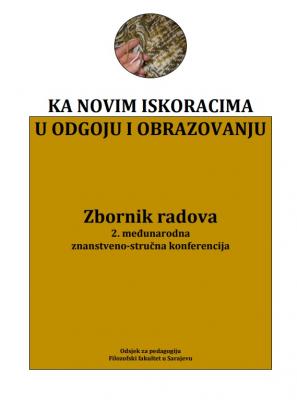ODREĐIVANJE ZNAČENJA NISKOFREKVENTNIH RIJEČI I PROŠIRIVANJE VOKABULARA U MLAĐOJ ŠKOLSKOJ DOBI
DETERMINING THE MEANING OF LOW-FREQUENCY WORDS AND VOCABULARY ENRICHMENT WITH YOUNG PUPILS
Author(s): Lidija BakotaSubject(s): Lexis, Language acquisition, South Slavic Languages, Preschool education, School education, Educational Psychology, Developmental Psychology, Pedagogy
Published by: Filozofski fakultet Univerziteta u Sarajevu
Keywords: unknown words; low-frequency words; learning the vocabulary;
Summary/Abstract: Former research has shown that the word frequency, i.e. higher exposure to a particular word and the frequency of its use is an important feature that helps words become a part of human mental lexicon. The paper analyses the knowledge of low-frequency words’ meanings nine-year-olds were exposed to within mother tongue (Croatian language) classes. The research corpus encompasses low-frequency words in literary-artistic texts, whose meanings pupils could not independently determine. After the initial memorizing of the words, the so called fast mapping into examinees’ mental lexicon, the conducted research had the aim to determine which low-frequency words were fully learned considering their semantic characteristics. The research results indicate insufficient exposure of pupils to low-frequency words in the teaching process, which does not result in a needed lexicon enrichment, and simultaneously presents an obstacle in achieving reading comprehension.
Journal: Zbornik radova Odsjeka za pedagogiju
- Issue Year: 2/2018
- Issue No: 2
- Page Range: 406-421
- Page Count: 16
- Language: Croatian

